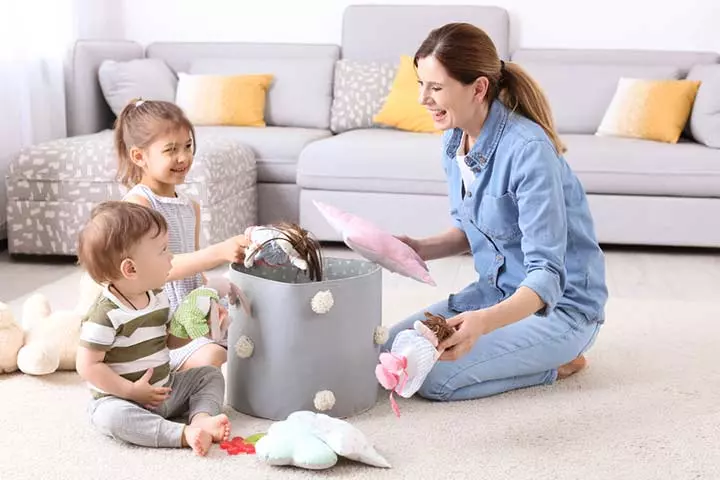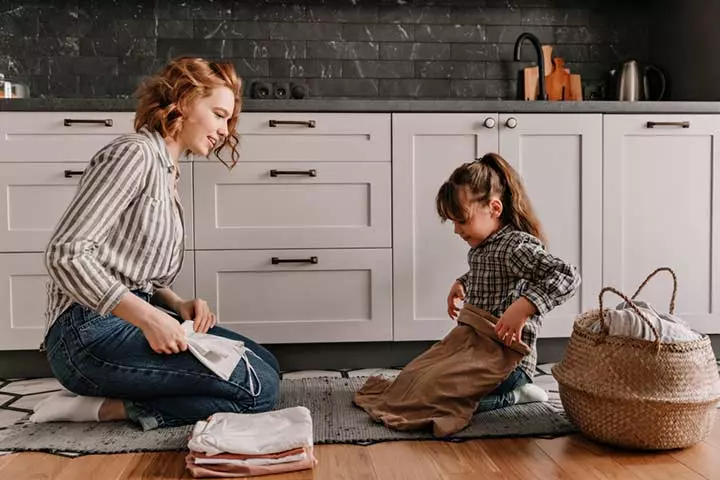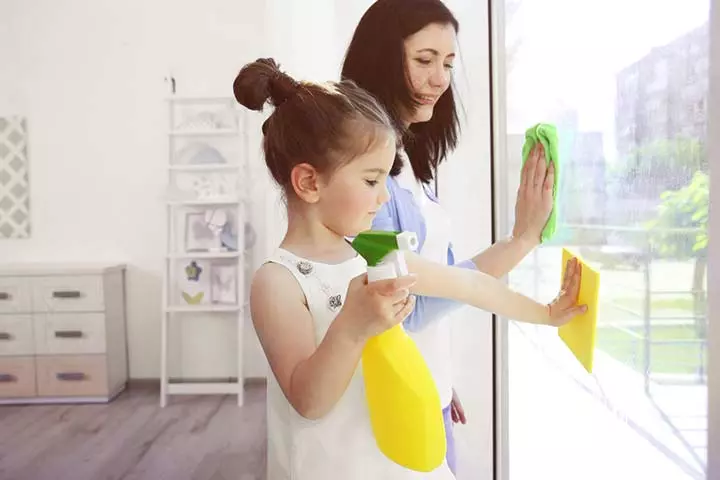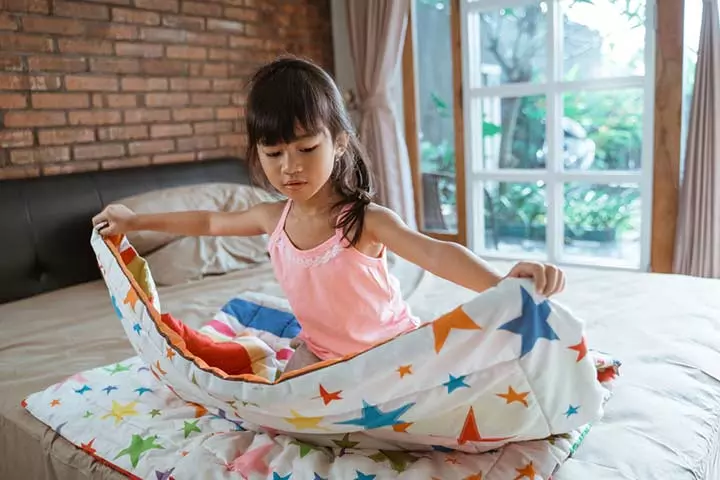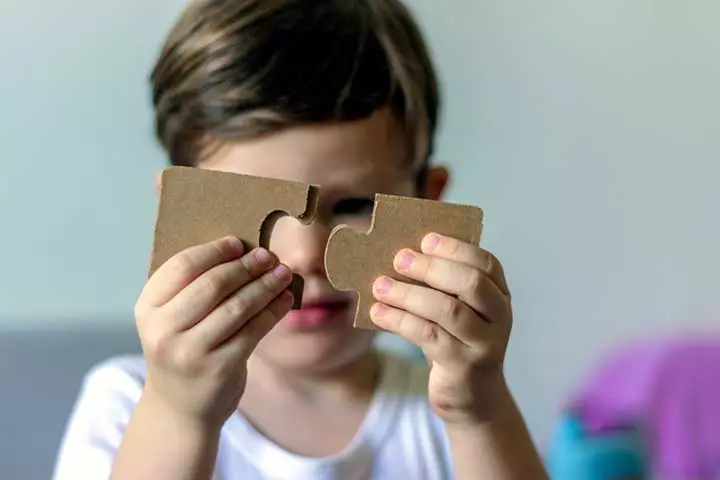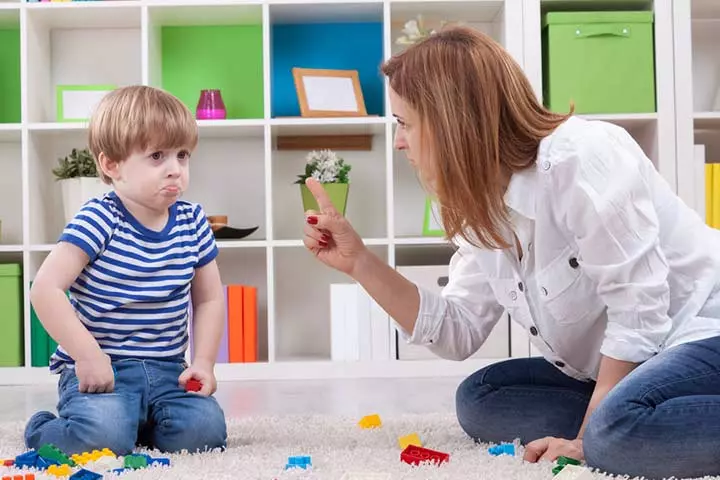

Image: Shutterstock
As parents, we want nothing more than our kids to be responsible. Whenever we come across someone imprudent, we cannot help but wonder how they were raised as kids. And you for sure don’t want your kid to end up that way. So it is important that you teach your child how to take responsibility at a very young age. Also, it would be easier if you teach them to look at it as a chance to better themselves rather than as a burden. Just like everyone else, children also want people to take them seriously. They would love it if they could do their contribution in any way possible. So you could channel this desire and teach them to be accountable for their actions. Below we have listed a few strategies that would help you do just that and increase your child’s responsibility quotient at a young age.
1. Let Them Know That Everyone Cleans Up Their Own Mess
Image: Shutterstock
Your house is bound to be a mess when there are kids around. However, you could teach them to clean up after themselves so that it becomes easier for everyone. Start by helping them out in the process. It is also important that you are chill about it so that they don’t get defensive about doing things by themselves. If your kid spills something, you could tell them that it’s okay and hand out a tissue while you help them with the cleaning. If they throw their stuff around after getting home from school, hand it back to them and tell them that we always clean up after ourselves.
2. Encourage Them To Contribute Positively
Image: Shutterstock
Although taking care of themselves is the first lesson, make sure your child learns empathy as well. Acknowledge your kid’s good behavior, however tiny that may be. Practicing positive reinforcement has proven to tremendously help parents instill positive behavior in children. Encouraging them to contribute to the household at a young age makes it easier for them to continue doing the same as adults. You could start by asking your little one to help with setting the napkins on the table and then go from there as they grow up. Kids who help out around the house tend to do the same in other situations well.
3. No Kid Is Interested In Doing “Chores”
Image: Shutterstock
Remember that your child will most likely dread the concept of doing “chores” unless you help them with the task for the first few times. You don’t want to dump it on them and then expect them to do it perfectly. Make sure you are there with them, helping them out and supporting them as much as you can. You could also use this time to have a bonding moment with your kid and teach them the value of taking up responsibility. This way, they are less likely to see it as a burden and will understand the satisfaction of completing a task.
4. Set A Routine And Structure For Your Kids
Image: Shutterstock
Introducing a solid routine in your child’s life helps them bring structure to their lives. Remember that the goal is to help them perfect certain tasks by themselves through repetition. For instance, their bedtime routine could include having them clean up their room and get ready for bed. Such methods can also be extrapolated to help them master other life skills such as doing the laundry and preparing simple meals.
5. Teach Them To Be Accountable For Their Actions
Image: Shutterstock
Let your kid know that there is a cost for all their actions. If your child hits her sibling, before asking them to apologize, try to understand her emotions. Helping her sort out her feelings will calm her down. Now you could ask her to think about her actions and what she can do about them. She might either apologize to her sibling or express it in other ways by giving a hug or sharing her toys. Remember that children are wise on their own, and as parents, we just need to guide them in the right direction.
6. Don’t Rush And Bail Them Out Of Every Difficult Situation
Image: Shutterstock
Parents have an innate urge to help their kids get out of a difficult situation. Sometimes it is best to let your kids figure out how to get out of trouble on their own. This would help them improve their problem-solving skills while learning to stand up for themselves. This doesn’t mean you cannot support and guide them while they sort their stuff out.
7. Never Call Them “Irresponsible”
Image: Shutterstock
This one is a common mistake that most of us make as parents but should not. Labeling your kid as irresponsible would most likely cause them to be defensive and would end up having the opposite effect of what you intended. Instead, you should encourage them to take up more responsibility.
Remember that your focus should be to help your kid learn responsibility and independence, and that requires your guidance and support as a parent. Be patient while they learn to master each task and find ways to motivate them to take charge of their lives. Let us know in the comments below how you help your kids be more responsible.
Community Experiences
Join the conversation and become a part of our nurturing community! Share your stories, experiences, and insights to connect with fellow parents.

